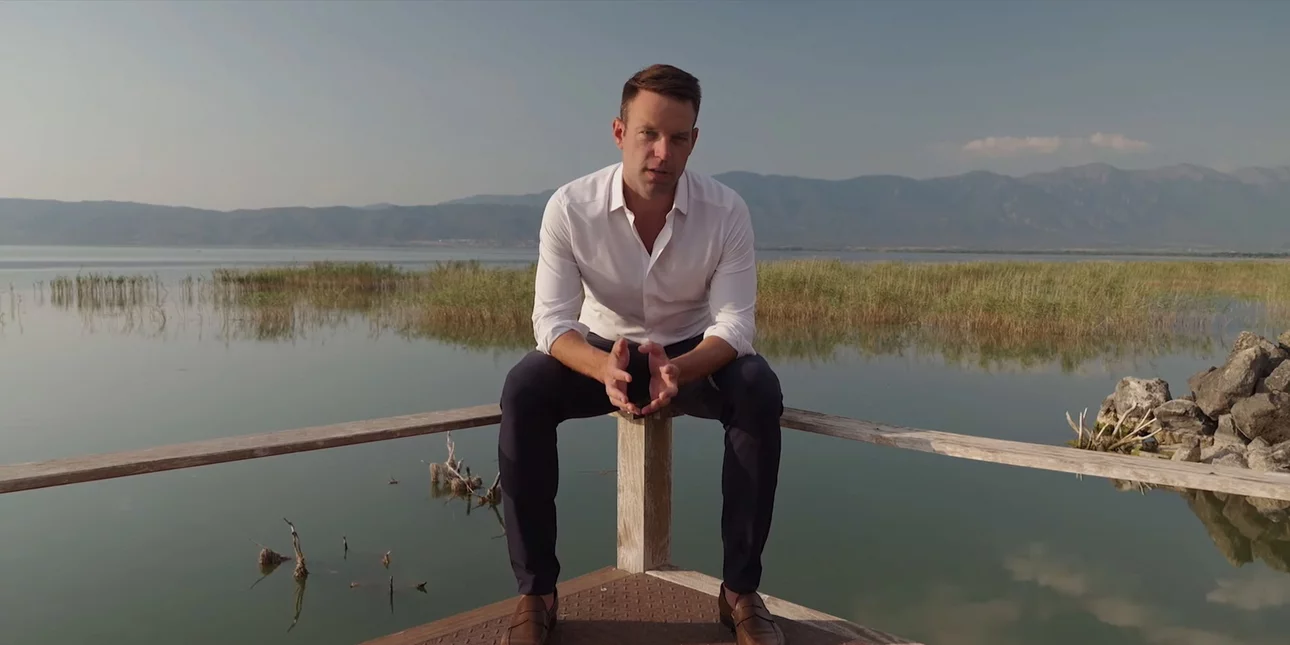By Dimitris Kouvaras,
Stefanos Kasselakis has come crushing with the force of an asteroid on current Greek political and media life. Openly gay, alleged shipowner, American-bred, presumably charismatic, yet previously unknown to all but few, he made the huge leap from obscurity to becoming leader of the second largest party, SYRIZA, and the spoiled child of national media. It took him less than three months. Outmatching experienced politicians in SYRIZA’s recent intra-party elections, after the resignation of the previous leader and former prime minister Alexis Tsipras, this total outsider can now figure as the new face of the Greek Left, or at least a large portion of it. Who is he, though?
Born in Greece but emigrating to the US at 14, he stayed there until he decided to run for the party’s presidency this summer. Self-proclaimed as self-made, he advanced from below and -with the help of some potent connections- turned from working in finance to engaging in shipping and allegedly accumulating certain wealth. Politically, he volunteered for Joe Biden’s campaign in 2008 and maintained relatively loose ties with Greek politics until his entanglement with SYRIZA’s leadership in 2021 and his successful presidential candidature this year. However, details about these aspects of his life and work are scarce. Worse still, they are blurry and contested, especially his financial status and activities. Others abound. The kind of coffee he drinks; the flavour of pizza he orders; his gym routine; his partner’s beauty; everything about his -now celebrity- dog. A media obsession unprecedented in Greek politics has put his name on the lips of the entire country, be it for applause or judgment. However, it has also turned the focus on such gossipy irrelevancies rather than political issues. For the moment, he doesn’t seem to bother; on the contrary, he enjoys the limelight like the charismatic figure he supposedly is. His campaign was designed from the very beginning as a media blitzkrieg: rapid diffusion of promotional videos; centralized attention on his communicational charisma; emphasis on his athletic physique, his exotic -in the eyes of many Greeks- gayness, and his healthy relationship with a nurse named Tyler.

The strategy played out well. It coincided with the shock of some utterly devastating floods in central Greece due to the storm “Daniel”, which indicated the weaknesses of state infrastructure, as well as the insufficiencies of crisis relief management and, following the summer’s wildfires, gave one more reason for public disappointment and distress. The media had to -willingly or not- engage in serious political critique. Kasselakis provided the perfect distraction, an anodyne subject that would keep viewers busy and provide amusement. Gossip spurred like crazy; heated discussions about his sexuality sparked off; his sketchy Greek was put under the microscope. People were ecstatic. Some found a messiah in him, some a fatal foe. Either way, they found someone to divert their attention from the issues Greek society is facing—the result: his triumph.

Only one thing eschews amidst this media panic: his political program. Besides generalities, with a lack of concrete argumentation and financial justification, all that remains is the fathomless self-confidence of a man who believes that he and his charisma alone can change a country. When a problem arises, he immediately promises that he will personally resolve it in no time. These days, he has ventured into the Thessalian wasteland, taking to work with the shovel to the aid of the flood victims. Not the mainstream politician, arguably, and closer to the people than most others. Still, however admirable it is that he doesn’t hesitate to get dirty and do manual labor in response to a crisis, it is not enough. A single man with a shovel cannot resolve a disaster of such magnitude without coherent and holistic political planning. If had to address him about announcing his intended policy, I would quote Eliot’s Wasteland by saying: “Hurry up please it’s time”.
One might ask why he was voted if he has not elaborated on his political agenda; and why he was taken seriously. What’s more, how come that happened, despite his contradictory profile, that defies many ideological focus points of the Greek left? I suspect that people may have found it hard to take any candidate seriously, so they just opted for the one who seemed more promising and was yet untested. Since others have disappointed, he should at least be given the chance not to. This, along with his media appeal, is crucial, given that the Greek Left finds itself awkward. After the unexpected -but justifiable- electoral diminution of SYRIZA this summer and the second-in-a-raw domination of the center-right party New Democracy, it is faced with an identity crisis that compounds the necessity of a straightforward, grounded, and detailed agenda.
In the past, the traditional Left employed anti-systemic and anti-institutional rhetoric, grounded in a mild or at times more pronounced skepticism against the EU, the US, and NATO. This stance can be ideologically traced to the political traumas of the Civil War (1946-1949) and the postwar military dictatorship (1967-1974), in which extreme right tendencies and anti-communism prevailed, while British and American interventions respectively played an important role in shaping the domestic power balances. As the Metapolitefsi, i.e. democratic reform, progressed, starting in 1975, along with European integration, this was gradually rendered obsolete. SYRIZA promoted itself as a reformist leftist party that would battle the fierce fiscal European policies imposed on Greece in the 2010s, managing to assume governance. However, its actions were clumsy or sketchy at best. A referendum fiasco led to its fall. Since then, it has been struggling to engage in fruitful opposition, remaining passive, while defaming the government on a superficial level.
Given the uneven balances in parliament in favor of New Democracy, the question arises: can Kasselakis provide a productive counterweight? I hardly think so. His victory signaled the end of the traditional Left. Still, he offered no tangible substitute to combat pressing issues such as the combination of rising inflation and living costs and stagnant wages. If he becomes prime minister, one doesn’t know what to expect of him. His years abroad mean he is ignorant of the day-to-day struggles of Greek society. More importantly, he is not familiar with the state procedures and bureaucracy either, since he insists on playing Superman. He is not even a member of Parliament. Overall, his intra-party coalitions seem paradoxical, a potential cause of instability, and a sign of opportunist behavior by certain politicians.

Time will tell if he succeeds. However, I fear Kasselakis is not the best chance the Greek Left has to acquire a new identity. Some aspects of its profile would be perfect for that, but his stance implies a lack of situational awareness. In his verbal and utterly abstract victory speech, he talked about the coming of “light”. Hinting again at Eliot, I fear that instead of the bang of the promised political reform, the only thing left will be the whimper of his ephemerous political firework fading over Wasteland.
References
- Stefanos Kasselakis: Ex-banker who lit up Greek politics to lead Syriza (2023) The Guardian. Available here
- Fallon, K. (2023) Ex-goldman sachs trader and political unknown wins race to lead Greek left, Politics News | Al Jazeera. Available here
- Stefanos Kasselakis: The political outsider hoping to revive the Greek left (2023) The Guardian. Available




